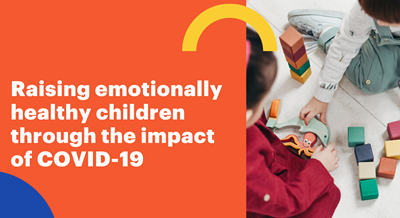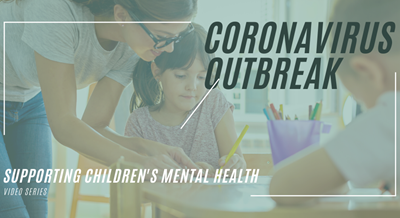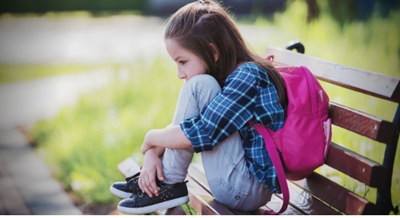
Get advice from a clinical psychologist on helping children to adapt to new mask-wearing advice.
As society continues to protect against COVID-19, children in Ireland are now being asked to wear masks and face coverings in school, in shops and in other public places.
Paul Gilligan, clinical psychologist and Chief Executive Officer of St Patrick’s Mental Health Services, shares some advice for parents and teachers on helping children to adapt.
Dealing with trauma
Children across the world experience trauma and adversity on a daily basis. Some of this is unnecessary, brought about by abuse and neglect, while some is simply part of life. While these experiences rarely do a child good, most children cope with the emotional impact, drawing off their inner resilience and supports to find psychological resolution. Some experience a significant negative emotional impact which requires additional support.
Whether a child experiences a negative psychological impact or not is determined by the child’s personality, the extent of the trauma and of other traumas being experienced at the time, the supports in the child’s life, and the meaning of the trauma for the child.
Compulsory mask wearing in school is an adversity placed upon our children arising from a world-wide pandemic. Most children will take this new regulation in their emotional stride, adapting as they do to other difficult life demands. Some may emotionally benefit - for example, those particularly anxious about COVID-19 for whom mask-wearing provides more security - and some will experience a negative psychological impact.
Helping children to adapt
As parents and teachers, we have a key role to play in helping a child adapt. This requires communication, empathy and self-awareness.
The first step is communicating a balanced, factual and reassuring perspective on why mask-wearing is necessary. If we don’t know or are not sure why it is necessary, we need to inform ourselves. Outlining what good will be achieved by conforming to this measure is vital. Presenting the “mandatory argument” may obtain conformity quickly, but will not obtain emotional buy-in.
Keeping the door of communication open at all times is crucial. This enables a child to express their concerns, annoyance and objections, and ensures they can resolve their negative feelings openly and constructively. Expressing negativity about wearing a mask in school should not be seen as a failure.
Empathising with the annoyance, distraction and discomfort mask wearing can bring, alongside reinforcing the good it is doing, will help a child adapt faster. Continually reminding our child how much they are loved, how good a person they are and of the happy things in their life will enhance their overall wellbeing and mental health.
Resolving how we, as parents or teachers, feel about the issue is vital to ensure we don’t burden our children with our own fears, anger or frustration. Addressing our own general anxieties and feelings of despair and of those related to the pandemic is an important part of the journey.
Supporting mental health
For some children, mask-wearing might be the issue that reignites a pre-existing mental health issue or combines with other adversities and traumas to initiate psychological crisis. Responding to this will require even more empathy, strength and perspective, remembering that mental health difficulties, even the most serious, can be resolved with the right support.
If a child begins to show or express signs of experiencing mental health difficulties, staying calm is important. Speaking openly about the difficulties and agreeing a strategy, which may involve seeking specialised help, are important next steps. Obtaining support for ourselves will also be useful.
Being resilient
From a psychological perspective, mask-wearing in school will do few children good. However, applying key mental health principles will ensure it doesn’t do emotional damage and will help ensure our children can continue to psychologically survive this pandemic.




